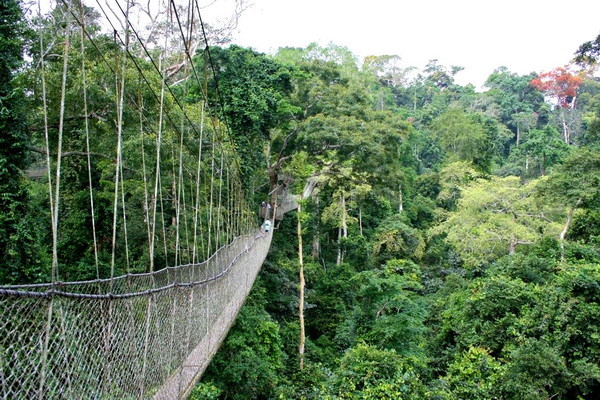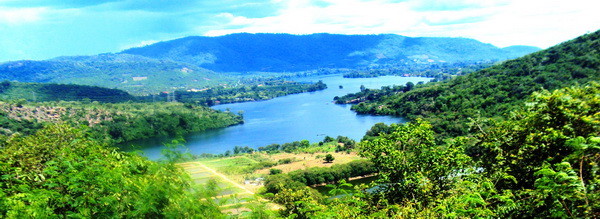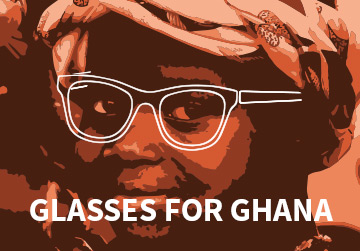Czech-Ghana Relations
Ghana and the Czech Republic have a long- standing relationship. When Ghana was still a British colony (the Gold Coast) Czechoslovakia exported to her textiles, glass, musical instruments and matches. Mutual Czechoslovak – Ghanaian relations have started to actively develop immediately after the declaration of independence of Ghana in 1957. And diplomatic relations were established between Ghana and the then Czechoslovakia in October 1959.
The Ghanaian president Kwame Nkrumah during the session of the UN General Assembly in September 1960 met Antonin Novotny, the President of Czechoslovakia, to discuss opportunities for mutual cooperation.

The same year, an Agreement on Scientific and Technological Cooperation between Czechoslovakia and Ghana was signed. Czechoslovak experts were sent to Ghana to help with the industrialization efforts of Ghana. They built and run factories. Czechoslovakia also provided lecturers for young universities and offered opportunities for the training of Ghanaian students in the Czech Republic in such fields as medicine, engineering, agriculture, architecture, mining etc.
The founder and first President of modern day Ghana, Osagyefo Kwame Nkrumah visited the then Czechoslovakia in 1961 and his visit was reciprocated the following year by the President of Czechoslovakia, Antonin Novotny. The two leaders thus cultivated friendly relations between their two countries which was reinforced with economic cooperation. Czech experts and engineers were earnestly visible in helping the industrialization effort of Ghana with building and running factories in the 1960s.

Relations between Ghana and Czechoslovakia exponentially grew in early 1961, when Prague began to sell arms to Accra and extended to the Ghanaian government a £5 million loan to help finance the Czechoslovak construction of a sugar mill, two shoe factories, a ceramic plant, tanning and plywood factories, a 200 bed hospital, and for the purchase of equipment for four hydroelectric power plants.
Trade links then were quite strong and through the barter system. Ghana’s raw materials were exchanged for manufactured goods. Bilateral trade amounted in 1963 to one hundred million crowns. Diplomatic relations between Ghana and Czech Republic in the past led to the establishment of factories such as the GIHOC Jute Factory, Komenda Sugar Factory, Aboso Glass Factory, Bonsu Tyres and Kumasi Shoe Factory.

However, when Kwame Nkrumah was overthrown in 1966 by a military junta that had the handiwork of the CIA written all over it, it also heralded in a long period in which Czech presence in Africa was to become highly minimal if not totally non-existent. Political changes also led to a sharp decline in bilateral trade (268 million crowns in 1969, in 1972 only 30 million crowns).
The revival of relations occurred in the early 90s of last century. Trade activities between the two countries in recent times has been on the increase but still requires improvement. A Trade Agreement to promote, facilitate and develop trade and economic co-operation between Ghana and the Czech Republic is in place since 1996.
On 9th November 2010, the Czech Republic and Ghana converged at a trade and investment forum aimed at reviving economic and business ties between the two countries. A number of Ghanaian and Czech entrepreneurs and representatives of various institutions of both countries participated in this forum. While the Ghana delegation was led by H. E Vice President John Mahama, that of the Czech Republic was led by the Prime Minister H. E. Petr Nečas.
The fact that the Ghanaian delegation was led by the Vice President himself provides testimony to the importance the President Mills administration is attaching to a broader scope of economic engagement with the outside world and especially with those countries with whom Ghana has had a history of sound economic cooperation.
Before his departure on 14th November 2010 he also visited the Czech Pilsen Technical University and the Skoda Factory also in Pilsen, which is the fourth largest city in the Czech Republic. Everywhere he went he invited Czech companies to appreciate interest in Ghana and encouraged them to invest in Africa. He found parallels in the transformational success of Czechs and called for collaboration to help revive and rebuild African economies.
In recent years, Ghana is the fourth largest trade partner of the Czech Republic among the countries south of the Sahara. Czech products have very good reputation in Ghana. Some areas of cooperation in the form of establishment of joint ventures between Ghanaian and Czech entrepreneurs include energy projects, sewage treatment, water purification, urban planning, construction, tourism etc.
